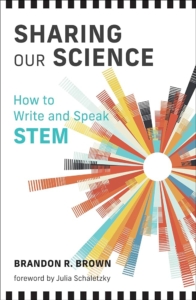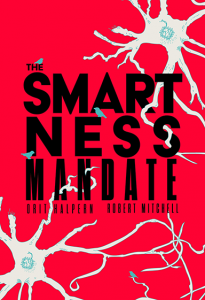“Sharing Our Science: How to Write and Speak STEM” with Professor Brandon Brown
Science communication plays an important role in bridging the gap between researchers and the general public, fostering understanding, engagement, and appreciation for scientific explorations and advancements. In an era where science and technology shape every aspect of our lives, effective communication of research findings is more critical than ever. This is also a time where there are conflicting views about scientific work and polarizations in societies. This makes effective science communication even more important not only to ensure that scientific knowledge is accessible to all, but also to empower individuals to make informed decisions, influences policy-making, and fosters trust in the scientific community. However, effective science communication goes beyond simply disseminating information; it requires clarity, creativity, and engagement strategies tailored to diverse audiences. By employing clear language and compelling storytelling researchers can effectively communicate their findings, thereby enhancing public awareness and understanding of the profound impact that science has on society. In his recent book “Sharing Our Science: How to Write and Speak STEM” Professor Brandon Brown, a scientist-turned-writing teacher, provides a highly valuable resource for STEM practitioners aiming to effectively convey their technical work to both specialised and general audiences. In this episode of Bridging the Gaps I speak with Professor Brandon Brown; we discuss this personal, practical, and inspirational guide for scientists and technical professionals seeking to enhance their written and oral communication skills in STEM fields.
Brandon Brown is a Professor of Physics and communications specialist at the University of San Francisco. He is an excellent science communicator. He has written for publications such as Slate, Smithsonian, and Scientific American and served as Deputy Director at the Green Science Policy Institute and a Senior Writing Coach for the Strictly Speaking Group.
We begin by exploring the significance of storytelling in effective science communication, delving into diverse tools and approaches such as tension and narrative to enhance the communication of scientific concepts. We further examine the utilisation of relatable examples, including simplifying large numbers and intricate comparisons like the size of an atom relative to its nucleus, to improve clarity and facilitate comprehension. We also address the detrimental effects of disinformation on science communication, which can lead to societal polarisation and divisions. We also reflect on Professor Brandon Brown’s personal encounters, highlighting how adept communication of challenging facts can profoundly influence individuals. This has been both informative and insightful discussion.
Complement this discussion with On Public Communication of Science and Technology with Professor Bruce Lewenstein and then listen to “The Joy of Science” with Professor Jim Al-Khalili




Connect With Us